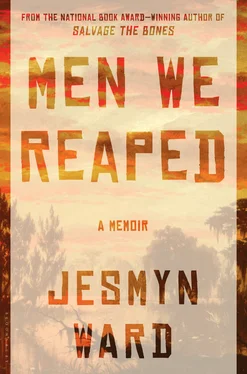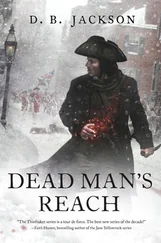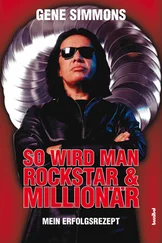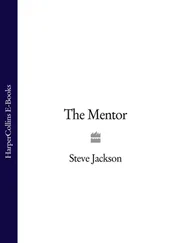We moved out of my grandmother’s house into our own one-bedroom apartment. I sprouted hair on my head, which grew half an inch, black and fine and curly, and stopped. It would not grow again until I turned three. In pictures of me from that time, my mother combed my hair forward in a silken cap in an effort to frame my face, to make me look more like a girl. In a picture from my second birthday, I am dressed in a long-sleeved red cotton peasant-style shirt, thick with maroon embroidery, and black pants. Red was the color my mother chose to dress me in, again and again: no pink or blue or green or purple, but red. Red as the blood tumors. I was not a pink girl. In one photograph, we are high in the hills above Berkeley and Oakland, dirt and yellow grass behind me. The dust in the dry hills makes the air look golden. I look healthy, like a beautiful boy. Most of the tumors, which were just beginning to shrink from their skin stretching red, were hidden by my outfit. My expression is serious as I gaze at the person behind the camera.
My father always told me he felt insulted when the doctors informed them that I would die. The doctor ignored me in the incubator, my head turned to the side, my lungs aflutter through the thin skin of my chest, and faced my parents and said: “Chances are she won’t survive.”
Daddy didn’t say anything. He stood there holding my mother’s hand. She would not cry until she could do so alone. There were a lot of things the doctors said to my mother and father when I was born, about my birth, the likelihood of my death, that they did not understand. Things they would not remember later when I asked them for the story. They were young and poor and Black in Oakland in the late seventies. My father waited until the doctor left, fit his solid hand into the plastic glove sealed into the side of the incubator, and brushed my tiny hand with one finger. He could not put his pointer finger in my palm for me to grab, since his finger was the size of my arm.
“I wanted to tell them you were a fighter,” he told me when I was a teenager. “I wanted to tell them that my baby wasn’t going to die because she was a warrior.”
We come from a line of men and women who have fought hard to live. My maternal grandmother, Dorothy, raised seven children on her own in a two-bedroom, one-bathroom house. Over the years, she worked and saved and transformed those two bedrooms into four. She held jobs as a maid, a hairdresser, a seamstress, and finally a factory worker at a pharmaceutical plant. “We need a woman who can work like a man.” My grandmother got that factory job after a man saw her lift and carry a full-grown hog on her shoulders. The men in my family have worked for decades as gardeners, carpenters, factory men, bootleggers, and shop owners, and have built houses from the ground up with their own hands.
My father said he knew even then that I would not disappoint.
I can remember little of those first three years in the Bay Area. My father had been a hellion before my mother and I showed up. He was picked up in raids when the police would target all the members of his gang for suspected drug activity, for scuffles with other gangs over narrow sidewalks, small roads. There were tens of them in holding cells, yelling at the police, shaking their heads, laughing, talking shit to each other: What did you do? Naw, man, what did you do? The artist in him fell in love with Jimi Hendrix; he put chemicals in his hair so that he could wear an afro, an afro that fell instead of stood. He was offered a scholarship at an art school when he finished high school, but he chose not to attend; he had his mother and his seven siblings to think of, so he worked. He worked at gas stations in ailing neighborhoods where prostitutes walked up and down the street. He treated them well, let them use the bathroom without buying anything from the store, joked with them while they were waiting for customers. On weekends, he went to drag races in Fresno with his friends and tripped on acid. But when my mother came to California, he slowed down some. He stayed home more, but his new domestic life with my mother didn’t prevent him from straying. Remaining faithful to my mother required a kind of moral discipline he’d never developed, since it was constantly undermined by his natural gifts: his charm, his sense of humor, his uncommon beauty. My mother fought with him about it, but this only made him cleverer and sneakier about his cheating, even as he said all the things my mother wanted to hear. Neither of us had daddies, so of course we going to be a family. Of course I’m going to be here . My mother was taking community college classes and working at my preschool during those years. She wanted to major in early education, to be a preschool teacher.
My father said that she was shaped like a Coke bottle, and that she was beautiful. I have seen pictures of her from those days, and she was beautiful: sharp cheekbones and nose, large eyes, long silky hair that ran over her shoulders and down her back like water, and a tiny mole at the corner of her mouth. When she brought me to the grocery store, people complimented her on her beauty, on me, her adorable baby boy. She’s a girl , my mother said. Eventually, she heard me called a boy so much that she stopped correcting admiring strangers.
I was walking by then. I was two. I had a fat belly, short legs, large dark eyes. The silken cap of hair. My father and mother had a party, the kind of party one has for no other reason than to share a good time with loved ones. My mother put me in a green jumper, and I toddled around my father’s legs, his cousins’ legs, my mother’s, my fathers’ sisters’. They picked me up, a miracle baby, and kissed me on my cheeks, which were still fat as ripe peaches. I walked to my room, pulled on a pair of cowboy boots and a cowboy hat my mother bought for me.
“What you doing, Mimi?” That was my nickname. The upstairs neighbor in our apartment complex called her daughter that, and my mother liked the name so much she stole it for me. I jumped on my steel rocking horse, set up in the corner, careful to not pinch my legs in the springs, and I began rocking back and forth, squeaking against the chatter of the drinking and smoking adults. They laughed. As the party wore on, I picked up cans when the adults weren’t looking, sometimes when they were, and sipped the dregs of their beer before they took the cans from me with a No, Mimi . My mother took a picture of me while I held a can to my belly, beer dribbling from my chin, the can half the length of my torso, before taking it away. In the picture, I’m grinning, my feet planted wide, almost proud. I was part of the party.
My father remembers those days better than my mother, or he is more open about them, or he is more nostalgic for them, which is why he talks about them with me and my mother doesn’t. Despite his pleasant memories, when we lived in California he missed home, he said. My mother didn’t. She wanted to stay in California. She’s told me less about that time, but she says she liked the freedom of it, the vista of the cities rolling themselves out over the hills. There were no vistas in Mississippi, only dense thickets of trees all around. You could only see the closest house, the dog chained to a tree, your brother riding his bike by on the dirt road. At night, perhaps, a snatch of stars: in the day time, the leaden rain-heavy clouds closed in. But in California, my mother could look out over the horizon and watch the sun rise in the east, and then she could watch it set out over the mammoth Pacific in the west. In California, my family sat at the center of those hills, and my mother could tend to her husband and her child only, free of family and the South.
When I attended college in the Bay Area, I missed the Mississippi air. I wonder if my father felt the same, if the steady cold of the bay made him miss the close heat of Mississippi. When my father brought up the idea of moving back home, my mother balked. They argued over it. But eventually my mother relented because she loved my father. She was also pregnant with my brother by then, and perhaps she wanted the support of her family if she was to have a second child. It was 1980. I was three.
Читать дальше












